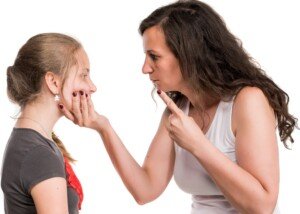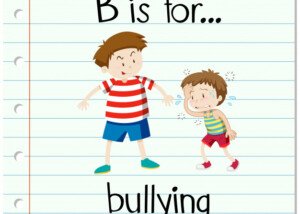
Should you assume that a bully has parents who bully him or her?
Just what kind of parents do youth bullies typically have in the first place?
Do parents of bullies bully their kid?
“This is actually a common misnomer,” says Rona Novick, PhD, who developed the BRAVE bully prevention program.
A clinical psychologist, Novick has worked with schools nationally on the issue of bullying, and is director of the Fanya Gottesfeld Heller Doctoral Program at Yeshiva University, NY.
“Children who are abused by their parents rarely bully others – abused children are usually timid and fearful,” continues Dr. Novick.
“While many abusing adults were, in fact, abused as children,” adds Dr. Novick, “during their vulnerable childhood years, abused children usually appear timid and fearful.”
However, Dr. Novick notes that there actually is some research that finds that parents of bullies may use more authoritarian styles of discipline.
“What is more likely, is that children who bully have witnessed their parents use bullying tactics on others.
“They may see Mom or Dad abuse their power to get their way with waiters, dry cleaners, teachers, neighbors, or other family members.”
Is your child a bully? Can’t figure out why?
Ask yourself how you respond to solicitors at your doorstep or telemarketers on the phone, and if your kids have witnessed your behavior.
Dr. Novick also points out that the child, who’s a bully at school, may witness their father bully around their mother, or vice versa.
Yes, sometimes the family bully is the woman of the house. And bullying doesn’t have to be physical. Words can strike as hard as a fist.
When parents bully each other, this sends the message that this behavior is acceptable and even a recommended way to solve problems and obtain goals.
“A more subtle way parents ‘teach’ children that bullying is acceptable is their response to it when they see it,” continues Dr. Novick.
“When parents see an older sibling bully the younger one, and do nothing, they communicate that bullying is not a problem.
“When parents see/hear/learn that their child has used their power to hurt another and they do not communicate their disapproval, children assume they approve.”
Have you ever seen parents throw a temper tantrum in an store when they couldn’t return merchandise, and in the shopping cart is a preschooler following the situation with big eyes?
That may be your future high school bully.

 Dr. Novick
Dr. Novick
























